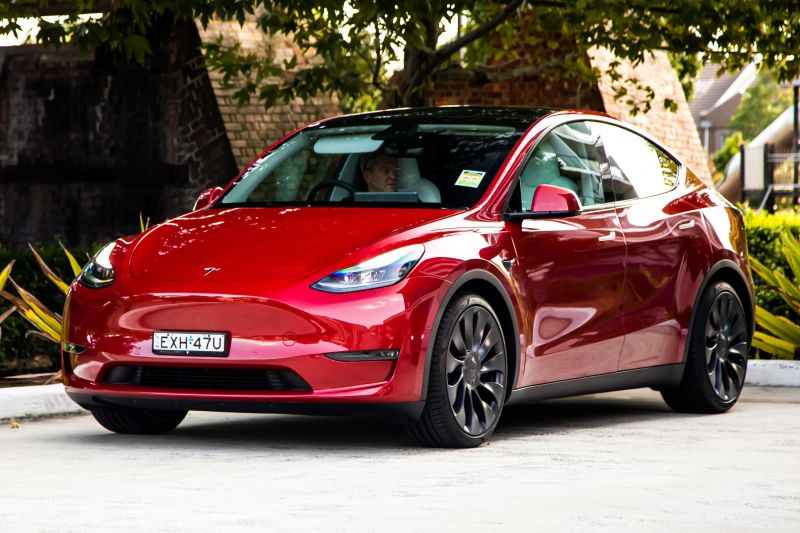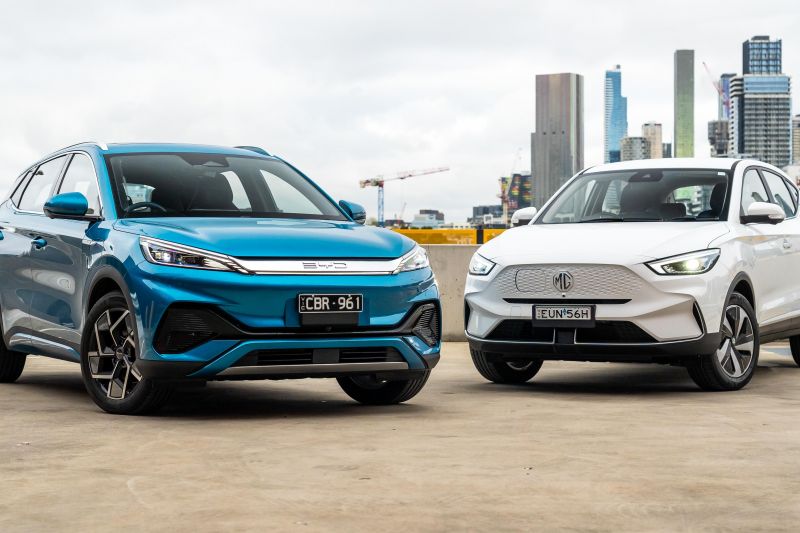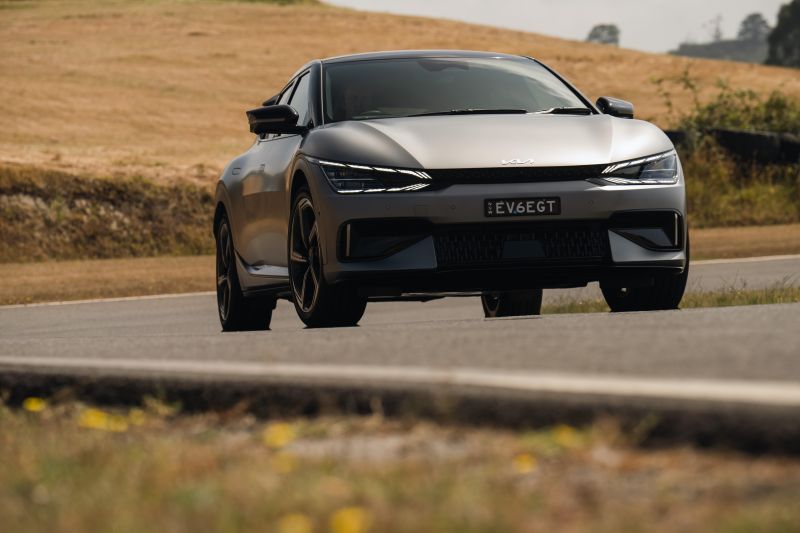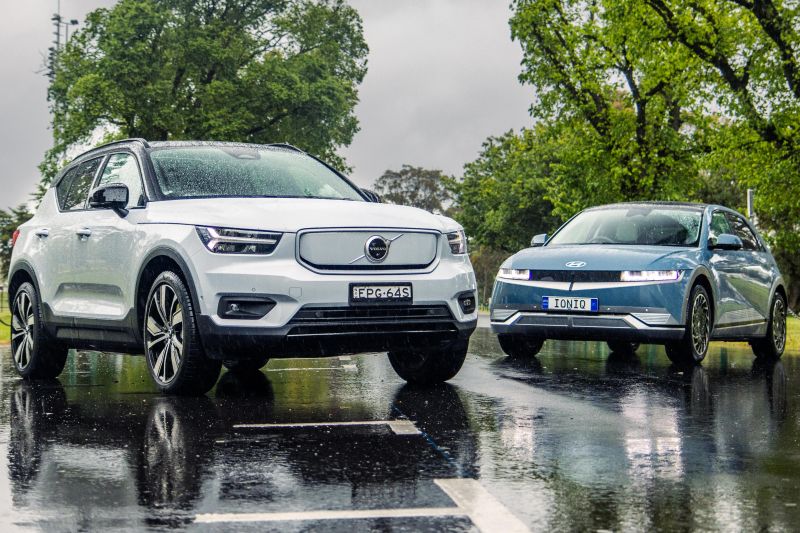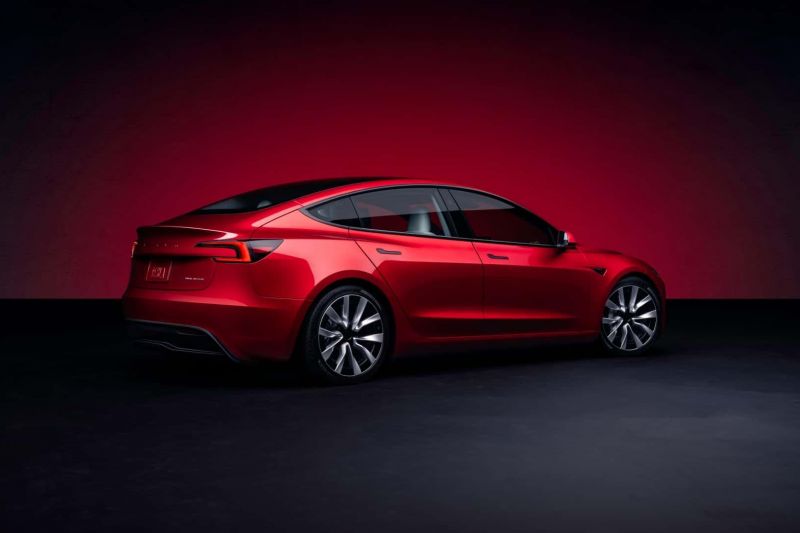Sales of fully electric vehicles (EVs) have more than tripled in Australia across the first nine months of 2023, compared to the same period last year.
The latest sales data shows 65,743 electric cars have been registered between January 1 and September 30, up 202 per cent.
This equals a 7.3 per cent share of the total market, but more importantly nearly 10 per cent (9.9 per cent to be precise) of combined passenger car and SUV sales – the areas where there’s actual buyer choice.
Market-wide year-to-date (YTD) there have been 44,933 electric SUVs sold, alongside 20,670 electric passenger vehicles (non SUV), and a meagre 140 electric light commercial vans and pickups.
There are now 50 individual electric nameplates on sale from 24 different manufacturers, although as the list below demonstrates the market is utterly dominated by a smaller handful of players.
Keen to know what new EVs are on the way? Check out our Electric Vehicle Calendar here.
Tesla continues to be far and away the leader, with 37,997 sales. This means Elon’s company single-handedly accounted for 57.8 per cent of all EVs sold in Australia YTD.
The Tesla Model 3 sedan is the overall number two passenger car (regardless of fuel type) between the Hyundai i30 in first and Toyota Corolla in third, while the Model Y is the outright number-one SUV ahead of the MG ZS and Toyota RAV4.
BYD is running in second having sold 8706 Atto 3 SUVs, ahead of the MG ZS EV (2356 sales, about one-in-ten of all MG ZS models sold), Volvo XC40 Recharge (2275 sales, half of all XC40s sold), and Polestar 2 (1789).
This means the top-six electric cars on sale are all produced in China, which has established itself as the world-leader in the supply chain: from critical mineral phase, through to production and export.
Rounding out the top 10 are the Kia EV6 (1147 sales), Volvo C40 (970), newly launched MG 4 (941), and the Mercedes-Benz EQA (725). See the full list a little further down.
While Tesla, BYD, MG, and Volvo top the charts by brand, there are other manufacturers with larger line-ups, led by Mercedes-Benz with nine EVs including sedans, SUVs, and vans. BMW sells five electric models.
As we have become accustomed to, there are substantial differences in the rates of EV take-up in Australia depending on State or Territory, as the table below shows.
Almost one-in-five (18.6 per cent) of new vehicles sold in the ACT this year were an EV, whereas in the Northern Territory their share is 2.4 per cent.
NSW, Victoria and Queensland, the three biggest regions, all have EV market share in the seven to eight per cent region.
EV sales and share by region
| Region | Sales | EV share of sales |
|---|---|---|
| ACT | 2612 | 18.6% |
| NSW | 22,025 | 7.9% |
| NT | 192 | 2.4% |
| QLD | 13,886 | 7.2% |
| SA | 3090 | 5.3% |
| TAS | 1046 | 7.0% |
| VIC | 16,980 | 7.1% |
| WA | 6063 | 6.5% |
Top-selling EVs by brand YTD
- Tesla: 37,997
- BYD: 8706
- MG: 3279
- Volvo: 3245
- Mercedes-Benz: 2064
- BMW: 1869
- Kia: 1868
- Hyundai: 1803
- Polestar: 1789
- Cupra: 594
- Nissan: 391
- Porsche: 375
- Audi: 369
- Mini: 355
- GWM: 283
- Genesis: 233
- Lexus: 226
- LDV: 104
- Fiat: 81
- Peugeot: 74
- Ford: 54
- Jaguar: 24
- Renault: 14
- Mazda: 12
Top-selling EVs by model YTD
- Tesla Model Y: 23,457
- Tesla Model 3: 14,540
- BYD Atto 3: 8706
- MG ZS EV: 2356
- Volvo XC40 Recharge: 2275
- Polestar 2: 1789
- Kia EV6: 1147
- Volvo C40: 970
- MG 4: 941
- Mercedes-Benz EQA: 725
- Kia Niro: 721
- Hyundai Ioniq 5: 707
- Hyundai Kona EV: 679
- BMW iX: 661
- BMW iX3: 597
- Cupra Born: 594
- Mercedes-Benz EQB: 578
- Hyundai Ioniq 6: 417
- BMW iX1: 391
- Nissan Leaf: 391
- Porsche Taycan: 375
- Mini Electric: 355
- Mercedes-Benz EQE sedan: 352
- GWM Ora: 283
- Audi e-tron GT: 260
- Mercedes-Benz EQC: 231
- BMW i4: 169
- Lexus RZ: 168
- Genesis GV60: 161
- Audi e-tron: 109
- Fiat 500e: 81
- Mercedes-Benz EQE SUV: 67
- Genesis GV70 Electrified: 66
- LDV eT60: 64
- Lexus UX300e: 58
- Ford E-Transit: 54
- BMW i7: 51
- Mercedes-Benz eVito: 42
- Peugeot e-2008: 39
- Peugeot e-Partner: 35
- Mercedes-Benz EQS sedan: 34
- LDV eDeliver 9: 30
- Mercedes-Benz EQS SUV: 27
- Jaguar I-Pace: 24
- Renault Kangoo ZE: 13
- Mazda MX-30: 12
- LDV MIFA 9: 10
- Mercedes-Benz EQV: 8
- Genesis G80 Electrified: 6
- Renault Megane E-Tech: 1
Keen to know what new EVs are on the way? Check out our Electric Vehicle Calendar here.
















